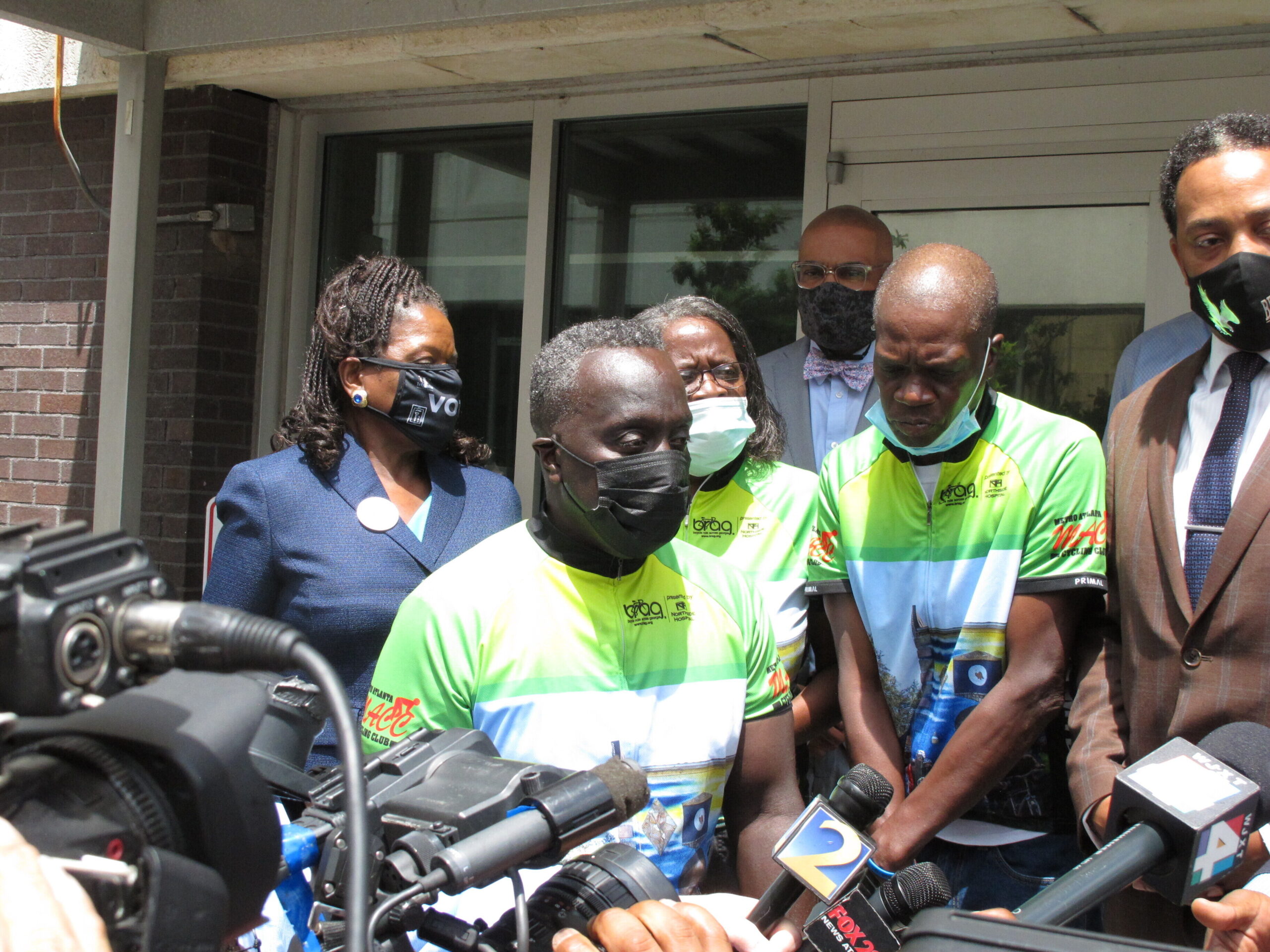Attorneys for a white father and son charged with chasing and killing Ahmaud Arbery are asking a judge to allow evidence of the slain Black man’s past problems to be presented when their clients stand trial for murder.
Prosecutors are fighting to keep Arbery’s criminal record and other prior problems out of the trial, while seeking the judge’s permission to introduce unflattering evidence about the defendants — namely text messages that contain racist slurs and social media posts with racist themes.
Superior Court Judge Timothy Walmsley has scheduled hearings on legal motions Wednesday and Thursday at a courthouse in Brunswick, 70 miles (110 kilometers) south of Savannah.
The judge’s rulings could have a big impact on how the trial plays out. Last week he scheduled jury selection to begin Oct. 18 in the murder trial of Travis McMichael and his father Greg McMichael, as well as a neighbor William “Roddie” Bryan.
All three are charged with malice murder and other counts in Arbery’s Feb. 23, 2020, slaying. The McMichaels armed themselves and pursed the 25-year-old Black man in a pickup truck after they spotted him running in their neighborhood. Bryan joined the chase and took cellphone video of Travis McMichael shooting Arbery three times at close range with a shotgun.
The case sparked a national outcry during a year of protests over killings of unarmed Black people. The Justice Department on April 28 added hate crime charges against the McMichaels and Bryan, who all pleaded not guilty to the federal counts before a U.S. magistrate judge on Tuesday.
In state court this week, Walmsley plans to hear arguments on 12 legal motions awaiting settlement ahead of the planned murder trial.
Defense attorneys for the McMichaels want the jury to know about 10 incidents from Arbery’s past, including that he was on probation at the time he was killed. Court records show Arbery had pleaded guilty to charges that he carried a gun onto a high school campus in 2013, a year after he graduated, as well as a shoplifting charge for stealing a TV from a Walmart store in 2017.
Prosecutors say Arbery’s past is irrelevant considering none of the defendants knew him prior to the fatal chase.
“The only purpose for placing the ‘other acts’ of Mr. Arbery before a jury is to smear the character of Mr. Arbery and suggest that his murder was deserved,” prosecutors wrote in a court filing.
Prosecutors have asked the judge to allow jurors to see text messages and social media posts that they contend show a lack of “racial goodwill” by all three defendants. They include a text message exchange from 2019 in which Travis McMichael twice uses a racist slur for Black people.
Georgia Bureau of Investigation agent Richard Dial has testified Bryan told investigators that Travis McMichael uttered a racist slur while standing over Arbery as he bled in the street. Jason Sheffield, an attorney for Travis McMichael, said his client denies making the remark.
For a deeper exploration of Ahmaud Arbery’s story, listen to WABE’s podcast, “Buried Truths.” Hosted by journalist, professor, and Pulitzer-prize-winning author Hank Klibanoff, season three of “Buried Truths” explores the Arbery murder and its direct ties to racially motivated murders of the past in Georgia.









